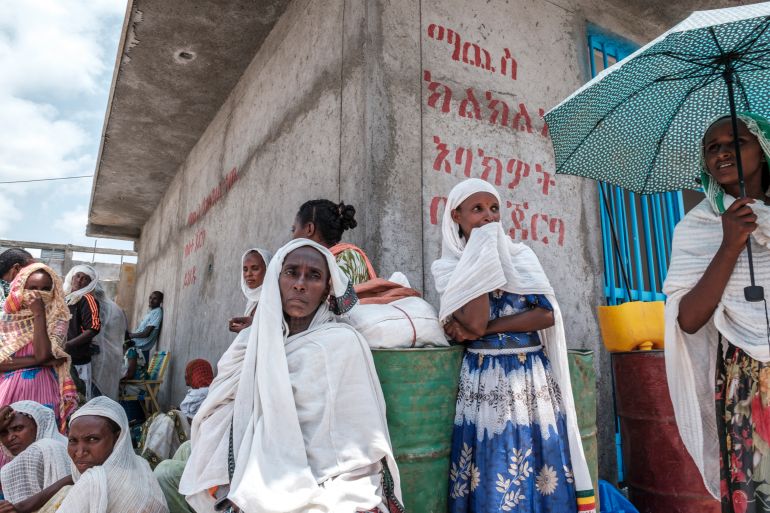Like US, UN suspends Ethiopia food aid over diversion of supplies
The UN agency’s suspension of food aid to Ethiopia comes a day after USAID took similar action.

The United Nations World Food Programme has said it is temporarily suspending food aid to Ethiopia because its supplies are being diverted, a day after the United States Agency for International Development said it was doing the same.
“Food diversion is absolutely unacceptable, and we welcome the government of Ethiopia’s commitment to investigate and hold accountable those responsible,” WFP Executive Director Cindy McCain said on Friday.
Some 20 million Ethiopians rely on food aid because of drought and conflict, out of the country’s population of roughly 120 million. Much of the aid comes from USAID and the WFP.
The suspensions brought fears that malnutrition could rise in Africa’s second most populous country.
USAID, WFP and the Ethiopian government have not said who is responsible for the food diversion, which the US has described as “widespread and coordinated”.
But earlier this year, USAID administrator Samantha Power told the US Senate Foreign Relations Committee that aid theft in the northern Tigray region appeared to “involve collusion between parties on both sides” of the conflict, which ended in November.
In a joint statement with USAID on Thursday, the Ethiopian foreign ministry spoke of “deeply concerning revelations” and said it was investigating with the US “so that the perpetrators of such diversion are held to account”.
Joint Statement by @USAID and @mfaethiopia pic.twitter.com/baV3nTB5AU
— U.S. Embassy Addis (@USEmbassyAddis) June 8, 2023
The nationwide food aid suspensions follow USAID and the WFP saying last month they had suspended food deliveries to Tigray while they investigated reports of food aid theft there. The region is recovering from a two-year conflict.
Some 5.4 million of the region’s six million people rely on humanitarian help.
In its statement on Friday, the WFP said it was continuing other programmes in Ethiopia for children, mothers and drought-hit pastoralists.
“WFP is working closely with its UN and humanitarian partners and local stakeholders to reform the way assistance is delivered across Ethiopia and in all high-risk operational contexts where we work,” it said.